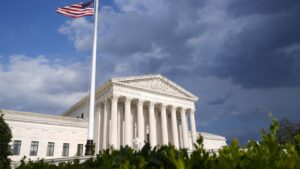Recent developments have seen over ten federal courts temporarily block or reject actions taken by the Trump administration on several fronts, including financial allocations and birthright citizenship. With numerous lawsuits still pending, the administration’s stance on judicial authority, as expressed by adviser Elon Musk and Vice President JD Vance, suggests a potential disregard for unfavorable court rulings. Notably, a judge has already found the administration’s compliance with court orders lacking. This raises critical questions: What measures exist to ensure government adherence to federal court decisions?
The Supreme Court has clarified that courts’ orders and judgments must be followed promptly. Federal courts possess several mechanisms to enforce compliance or penalize noncompliance, ensuring their rulings are respected.
Enforcement Tools of Federal Courts
Courts can employ various enforcement tools, including contempt proceedings and attorney sanctions, to ensure compliance with their orders.
Contempt Proceedings
Federal courts can invoke contempt power to compel action or penalize noncompliance. Recognized by the Supreme Court as essential for enforcing court decisions, this power has historical roots in the Judiciary Act of 1789. Contempt can be civil or criminal, with possible sanctions such as fines or imprisonment. Civil contempt focuses on future compliance, while criminal contempt aims to punish past noncompliance. For instance, President Trump was fined $110,000 for civil contempt in 2022 for noncompliance in a document submission case.
Public officials, including government agencies, can also be held in contempt. The Environmental Protection Agency and former Secretary of Education Betsy DeVos have faced such actions. In DeVos’s case, the Department of Education was fined $100,000 for defying a court order on student loan collections.
Stricter Orders and Writs
Judges may issue stricter orders with clear compliance benchmarks before initiating contempt proceedings. In a recent case, U.S. District Judge John McConnell ruled against the Trump administration for not lifting a freeze on federal grants, clarifying the order’s requirements after initial noncompliance.
In cases of persistent noncompliance, courts can issue writs of mandamus to compel government officials to perform legally required actions. This power is codified in federal law, though courts can only mandate nondiscretionary duties.
Attorney Sanctions
Courts can discipline attorneys who assist in defying court orders. Penalties, ranging from fines to disbarment, are enforced under Federal Rules of Civil and Appellate Procedure for improper conduct or filings.
Enforcement Reliance
Federal judges depend on law enforcement, primarily the U.S. Marshals Service, to execute court orders. The Marshals serve legal documents, make arrests, and enforce court orders as part of their mandate. Federal prosecutors typically handle criminal contempt cases, though judges can appoint private attorneys if needed.
Compliance by Government Officials
Historically, elected officials have adhered to court orders despite disagreements. President George W. Bush exemplified this by accepting a Supreme Court decision on Guantanamo detainees. Similarly, President Trump complied with court rulings during his first term, including a block on his travel ban.
The last significant defiance occurred during the civil rights era when Southern governors resisted school desegregation post-Brown v. Board of Education. President Dwight Eisenhower intervened to enforce the ruling, underscoring the constitutional obligation to uphold court decisions.






